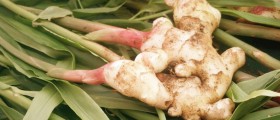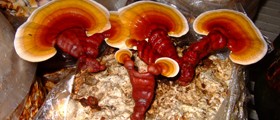
Information on Astragalus
Astragalus is an herb that originates from China. It has been used there ever since the ancient times because it provides numerous different health supplements.
In modern times it is mostly used as a dietary supplement for several different purposes. Astralagus is a large genus and it is actually the largest one in the family known as Leguminosae.
They are perennial shrubs and they commonly grow in Korea and China because they require temperate regions. Astragalus is botanically referred to as the astragalus membranaceus but it is also widely known as milk vitch. The plant is not toxic and its taste can be described as a mixture of bitter and sweet.
Its root can be used for the treatment of numerous different types of viral and bacterial infections. It can also come in very handy when it comes to the boosting of the immune system and increasing the levels of energy in the body.
Astragalus is also known for its potent diuretic properties. Astragalus can be purchased in the form of tea, extracts and sometimes even tinctures. It can also be contained as an ingredient in numerous different types of medicaments and supplements.
Astragalus can also be found as an ingredient of some ointments which are mainly used for the soothing and treatment of wounds.
Side Effects of Astragalus
Most people make a mistake by thinking that all natural products are safe and that they can be applied externally or consumed with no side effects at all. Numerous different herbal remedies and supplements can cause side effects and several different types of allergic reactions as well.
Astragalus is no exception to the rule and it may not be safe to be consumed for certain persons. Side effects of astragalus can range from minor to severe and they may or may not affect all the people that consume it.
Minor side effects of astragalus commonly include rash, gas, hives, abdominal pain, itching, nausea, tightness in the chest, diarrhea, and difficulty breathing. Astragalus can also sometimes make the symptoms of autoimmune diseases even worse.
Those include rheumatoid arthritis and multiple sclerosis. Children should also avoid astragalus. It is not known whether astragalus may be potentially harmful for pregnant women, but is strongly advised not to use it during the pregnancy.
It is also not recommended for breastfeeding mothers because it is unknown whether it can pass into the milk and be potentially harmful for the infant. Astragalus may also sometimes interact with certain types of medications.

















Your thoughts on this
Loading...